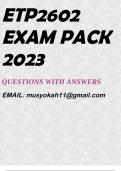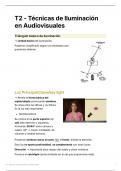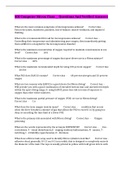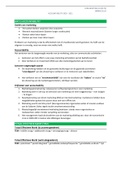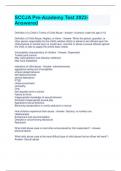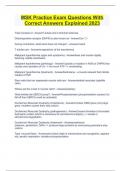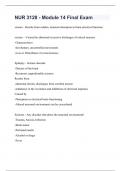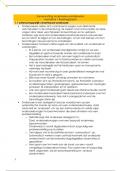Semester 4, second year (2023-2024)
Until midterm on 22-03-2024
Lecture 1 until lecture (week 1 to 6)
Week 1: Lecture 1 - Introduction to the course and Perennial debates
Required reading:
● Dutkiewicz, J., & Smolenski, J. (2023). Epistemic superimposition: The war in
Ukraine and the poverty of expertise in International Relations theoryLinks to an
external site.. Journal of International Relations and Development, 1-13.
Notes:
Abstract
● Since Russia's invasion of Ukraine in 2014, many scholars with expertise in international
relations theory have offered explanations, predictions, and prescriptions for state action.
We critique this trend and propose the concept of "epistemic superimposition" to describe
the methodological error of overlaying abstract theories onto unique historical and
political contexts.
Introduction
● In the wake of Russia's all-out war on Ukraine launched on February 24, 2022, adherents
of the "realist" theoretical tradition in international relations have claimed that Russia's
hand was forced by the West. This claim was critiqued by scholars of Ukraine.
● Between the invasions in 2014 and 2022, there was little effort made by realists to bridge
the gap by engaging with area studies and the empirics of Ukrainian, Russian, or Eastern
European politics. This matters because realists' contributions help shape scholarly,
public, and policy knowledge and opinion about the conflict.
● This article challenges realist scholars' claims about the causes of Russia's invasion of
Georgia and proposes a new concept of epistemic superimposition. It concludes with a
call for more reflexivity among scholars about how they approach politics.
Theory without the facts
● John Mearsheimer blames the West for Russia's invasion of Ukraine, and has repeated
this claim in lectures, scholarly articles, essays, interviews and television appearances.
● The analytical framework of offensive realism states that aggressive state behavior is a
result of the anarchic nature of the international system, which makes international
politics a zero-sum game. Great powers have every incentive to pursue policies that tilt
the balance of power in their favor.
, ● Applied to Russia's invasion of Ukraine, this theory lends itself to a parsimonious
explanation: the West's open door policy towards Ukraine and Georgia made them look
like Western bulwarks on Russia's south-western border. This pushed Russia to invade
Donbass and Crimea in 2014. Mearsheimer predicted that Putin would not invade other
parts of Ukraine, but was proven wrong and reverted to the same explanations and
prescriptions he had offered in the wake of 2014.
● Despite making big claims about the causes of the conflict and prescriptions for ending it,
Mearsheimer often relies on thin or selective deployment of sources, and his engagement
with area studies scholars familiar with Ukraine or scholars from Ukraine is virtually
nonexistent.
● Despite the dissolution of the USSR, Russia was reticent to relinquish its "special
powers" as a guarantor of peace and stability in the region. It used ethnic conflicts in
Moldova, Georgia, and Azerbaijan as an opportunity to intervene politically and
militarily.
● Ukraine has been subject to Russian coercion virtually from the moment of the USSR's
dissolution. In 2003, Russia began unilateral construction of a dam from Russian territory
towards disputed Tuzla island in the Kerch strait. Throughout the 1990s and 2000s,
Moscow used energy supplies and other economic means to influence Ukraine's foreign
and domestic policy. In 2014, however, Moscow failed to control Ukrainian politics
through economic means, and instead used social discontent to manufacture a conflict.
● Russia's assertiveness is a crucial backdrop for NATO enlargement in 1999 and 2004.
Eastern European and Baltic states saw joining NATO as a socio-political choice and a
strategic one. Ukraine's pro-Western and pro-NATO course was also directly shaped by
Russia. Public opinion turned decisively in favor of NATO after Russia's occupation of
Donbass and Crimea in 2014, but Kyiv was never offered the Membership Action Plan
by NATO.
● Mearsheimer could counter that Russia felt threatened by Ukraine's rapprochement with
the West and NATO's eastward enlargement, but this would be a cop-out of the failure of
his empirical claims.
● We cannot offer a parsimonious, monocausal story to counter Mearsheimer's, but a
combination of Russian leadership's ambitions to reestablish control over former
possessions, displeasure at Ukraine's identitarian and regime divergence from Russia, and
a sense of vulnerability led to the decision to invade.
Epistemic superimposition
● Mearsheimer's The Tragedy of Great Power Politics is a logical tautology: it assumes that
states act a certain way given systemic conditions and constraints, and then prescribes
that states should act the way that they are already assumed to act.
, ● Theory should be rigorously tested based on engaging with the empirics of a given
phenomenon, and offensive realism offers one way of understanding motivations for state
behavior. If the evidence suggests that the theory applies, the theorist should make
prescriptive claims.
● Mearsheimer is not a poor researcher, but rather he is engaging in epistemic
superimposition, which is the act of overlaying theoretical assumptions onto unique
socio-historical circumstances without interrogating whether these theories are
applicable.
● Epistemic superimposition is caused by a methodological error, but it can also point to a
deeper flaw with the epistemological assumptions of a given scholar: the ideologization
of theory itself.
● Realism, and especially its mono-causal variants like offensive realism, may be
particularly prone to unfalsifiability, which can lead to an engagement with empirical
data and area studies scholarship that we discussed in the previous section.
● Scholars recognized as experts in a topic provide analyses and prescriptions with the goal
of shaping public or policy discourse about a given political situation. In the case of
Mearsheimer, his ideas have been tremendously successful both inside and outside the
academy.
● Mearsheimer's take on Ukraine has not escaped critical scrutiny, but his writing on
Ukraine has been widely and positively cited by other scholars in the realist tradition and
within international relations.
Expertise without a subject
● Mearsheimer has not been the only realist to opine about the war. Samuel Charap and
Scott Boston argued that any assistance Washington might provide in coming weeks
would be largely irrelevant in determining the outcome of a conflict should it begin.
● As realist ideas are thrust out of academic texts and seminar rooms into the public
spotlight, they are open to critique. Many have responded by circling the proverbial
wagons around their theory. To the realists, realism is under threat, and as a major theory
seeks to survive and retain influence. They defend IR theory as the lodestone of the field,
and argue that theorizing is being marginalised in favor of hypothesis testing and
qualitative research.
● It is here that we encounter two intersecting problems: the Western-centric character of
IR theorizing and the exclusion of Eastern European knowledge and experience from the
discipline from the beginning of its formal existence. As other IR scholars have noted,
offensive realism sounds plausible because it articulates commonly held, common-sense
assumptions about world politics.
● Given the nature of realists' policy prescriptions, which aim at maintaining a balance of
power between great powers and privileging their interests over those of weaker states, it
, seems that these aim to move the world into alignment with realist theory more than
anything else.
● If realism is a theory, then a person can claim to be an expert on virtually any clash
between nations. However, realism is based on expertise in the theory itself, and therefore
recognition of expertise within academia.
● The description and prescription aspects of realism are not only not distinct from each
other, but mutually reinforce each other. This leads to a circular analysis of empirical
evidence that is read backwards into the analysis of expert claims about politics.
Conclusion
● In this article, we have critiqued a methodological error, namely the tendency of some
theorists to treat theoretical claims about political events as a priori applicable rather than
empirically falsifiable. This error can lead to unsubstantiated claims about the causes of
political events.
● In the wake of Russia's invasion of Ukraine, some realist scholars have criticized the
empirical errors or hyper-simplified causal stories of proponents of structural realism like
John Mearsheimer. We applaud these efforts, but warn these scholars that sound empirics
are central to theorizing.
● In this article, we urge scholars to be modest when claiming expertise about subjects, and
to treat all theories as falsifiable. We also urge editors and the news media to interrogate
the claims made by academics and to seek regional and empirical expertise from experts
in particular regions.
● Acharya, A. (2014). Global International Relations (IR) and Regional Worlds. A
New Agenda for International StudiesLinks to an external site.. International
studies quarterly, 58(4), 647-659.
Notes:
The International Relations of Sahibs and Munshis
● In 1800 AD, the Governor-General of British India set up a college in Fort William,
Calcutta (now known as Kolkata) to train officials of the East Indian Company to become
ministers and officers of a powerful Sovereign.
● The Fort William College acquired a potential for becoming the "Oxford of the East", but
its faculty fell into two categories: the British Sahibs and the Indian Munshis. The
Munshis taught local languages, history, customs, and antiquities, while the Sahibs taught
European students.
● The Indian scholar was superior to his European master in respect of Indian languages,
but the British set the agenda.
● The College of Fort William did not survive, and was replaced by another college in
Haileybury, England.

